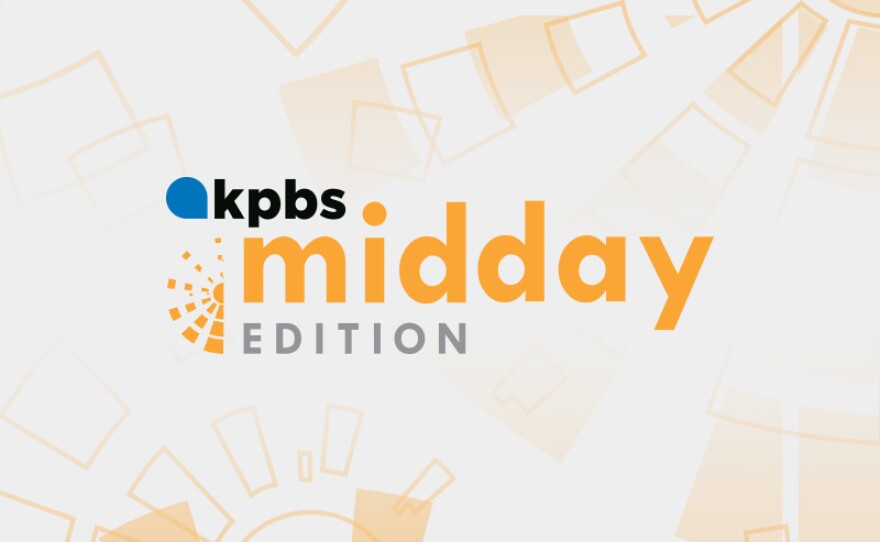San Diego County Begins Menstrual Equity Program, Providing Free Menstrual Products
Speaker 1: 00:00 As part of a new initiative to boost menstrual equity across the county, San Diego will begin taking steps to address the issue of period poverty. The free form menstrual equity program will install dozens of free vendor dispensers of menstrual products and facilities across the region. The initiative looks to address an issue that has long disproportionately affected people, experiencing homelessness, transgender people, youth, and low income individuals. Joining me to discuss the issue is Dr. Kelly. Modelle the county's child health officer. Dr. Modelle welcome. Speaker 2: 00:35 Thank you so much for having me. So Speaker 1: 00:36 First, how pervasive is the issue of period poverty in San Diego county? Well, Speaker 2: 00:42 In reality, anyone who has experienced the, uh, opportunity where they've been out in public and not have access to menstrual supplies has experienced at least one episode of period poverty, but as you said, it is disproportionately impacting in vulnerable communities. And what role Speaker 1: 00:58 Have physicians such as yourself played in trying to boost menstrual equity within the community? Speaker 2: 01:03 You know, for my health issue, we really need to help educate our youth and our administrators about the risks of using alternative products, um, or rationing their supplies, because this can actually cause real health issues. So as physicians, it's important that we talk to our patients about these risks, such as skin irritation from wet or non absorbent materials, and also the increased risk of urinary tract infections, or in fact, an infection known as bacterial vaginosis, which can actually put our patients at higher risk for other infections as well. And can you Speaker 1: 01:35 Tell us a bit about how menstrual equity at its core is a public health issue? Speaker 2: 01:40 Absolutely public health issue, because there are so many individuals that are facing the lack of access to menstrual products and it can cause these health issues that I mentioned, but it also can cause emotional distress that is not insignificant. We know that there are studies that have shown that those who have been caught without menstrual supplies or have not had access, do have higher levels of anxiety and depression. And you Speaker 1: 02:04 Know, this might be an issue that many people think affects the third world or something, but why is this happening here? Speaker 2: 02:10 No, this is not just happening in the third world. Any anybody who has been in this situation could have had to decide between using, uh, using their money for food or menstrual products. And of course they would then choose it for food. And 86% of respondents to some surveys have shown that they've had an experience where they've been in public without a supply. So this is not simply happening with our world. This is happening right here, not only in the U S but in San Diego, how has the pandemic exacerbated this issue? One of the things that was raised, um, that was brought to our attention was that with the pandemic and schools closed, um, this was one place that many young, uh, mentors were accessing their menstrual products. And so without that access to their school campuses, they were having an increased, um, experience period pirating. And that brings me Speaker 1: 03:01 To my next question. How does this issue then affect children in particular? Speaker 2: 03:05 Well, one in five have missed school because of getting their period. We know that that can be the case, but also as I mentioned, that emotional distress can be caused levels of depression that will impact their schooling and their education, but also cause them stress at school. If they're there and find themselves in this vulnerable situation, where Speaker 1: 03:25 In our community, do we see a lack of menstrual equity most Speaker 2: 03:30 Really in our vulnerable communities. So as you mentioned in our transgender communities and those along income lines, we see this as well. Um, anybody who has experienced homelessness has, has had this issue. So again, these vulnerable groups in particular, my concern, this will wage administrators. And what Speaker 1: 03:49 Do you think are some of the reasons that access to menstrual products has not been made a priority here until now? Speaker 2: 03:56 You know, oftentimes having a period is a taboo subject. So it's not something that people talk about freely. And certainly women do not want to step up. Or Mr. Raiders do not want to step up and admit to having this lack of access to menstrual supplies when it's something they're not even talking about at all to begin with and Speaker 1: 04:13 Where can people access the county's vending machines with free menstrual products. Speaker 2: 04:17 So right now, in a pilot phase of our initiatives, we have 57 dispensers at 23 of our facilities. Those might be in our family resource centers are liberal centers, the public health centers, library, community centers. And we hope in the longterm that we'll be able to have them throughout all county public facing facilities. I have been speaking Speaker 1: 04:37 With San Diego counties, child health officer, Dr. Kelly. Modelle Dr. Modelle. Thank you so much for joining us. Thank you so much for having me.


